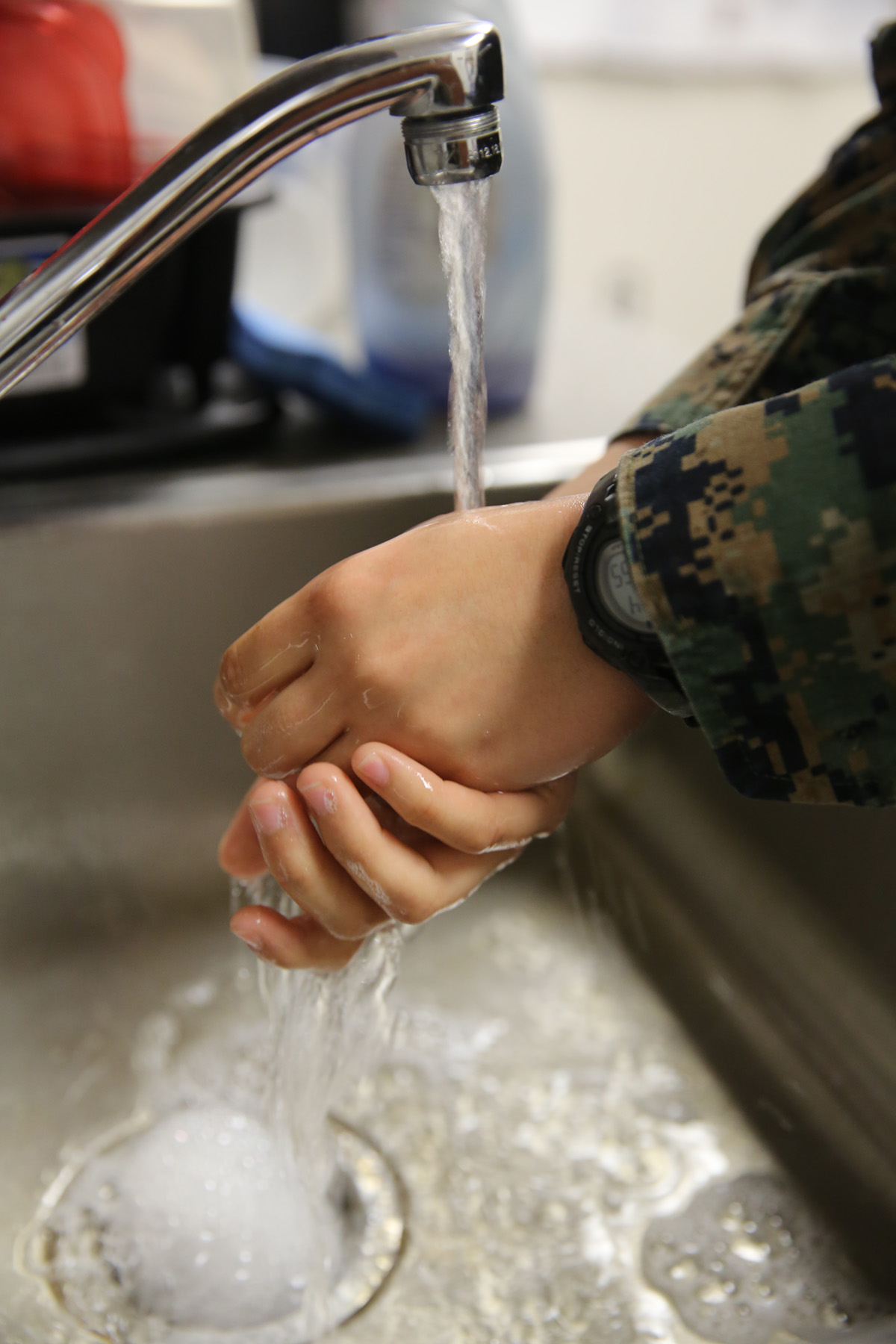
The flu is a viral infection with a sudden onset which is manifested through chills, fever, aches, and fatigue. It is different from the common cold in its severity, intensity, and duration. Some of the symptoms such as coughing or generally feeling weak can still be present well after the person has gotten better. As common as it is the flu is a very debilitating illness with the recovery period of a few weeks regardless of the fact that the most intense symptoms are only present for a few days. Flu virus spreads very easily via human contact, and coughing or sneezing so it is best to protect oneself with a flu shot. In addition, there are numerous ways to fight the flu but the single most effective is the vaccine. Flu vaccines are readily available and should be taken every year.
How are the Germs Spread?
When an individual sneezes the droplets are released into the air and inhaled by another person. Also, if a person touches an area likely to be covered with germs, such as a door or a bus handle, and then touches the nose or eyes the virus easily enters the body. Fortunately, preventing the flu is fairly easy as it involves washing one`s hands regularly and sneezing into the elbow. Preventative measures should be practiced even if an individual is not susceptible to viral infections in order to reduce the spreading.
In addition, the germs are easily spread around the house. Although the bathroom is usually regarded as the dirties part of a home, the kitchen is actually a great place for storing bacteria. Kitchen clothes and sponges stay damp for long periods of time often covered by food bits making it very comfortable for germs. Further, one should always have a hand sanitizer handy in case there is a need to use a public washroom. As infected individuals touch the doorknobs, toilet paper rolls, and so on they leave their germs for the next person to pick them up. It is absolutely imperative that hands be washes or sanitized with alcohol based products for hands. Shopping carts are another great place where an array of viruses and bacteria can be found.
Escalator handrails or any handrails for that matter are always covered with filth and should not be touched. Places and spots which are frequented by large numbers of people should be brought down to a minimum during the flu season, and avoided as much as possible for the rest of the year.
How to Prevent the Flu?
It is crucial that individuals do not sneeze into their bare hands as they are extremely likely to touch something before they actually wash their hands. Sneezing into a tissue or better yet into the upper arm are effective ways to prevent the spreading of the germs. Using hand sanitizers or washing hands a few times a day is one of the most recommended prevention tactics.Also, medical care professionals advise against going out in public when sick, but if it is necessary they recommend individuals wear surgical masks. In addition, people should avoid touching their eyes, mouth, and nose for the hands may look clean but they contain plenty of germs. Alcohol based hand rubs are a very good alternative to hand washing in fighting the flu. Washing one`s hands or applying hand sanitizers should always be done after using a washroom, blowing the nose, coming into contact with an infected person, throwing out the garbage as well as before preparing food or eating. Warm water is best for hand washing and it is important that every part of the hand, including the area under the nails, is thoroughly washed. After having washed one`s hands for approximately 20 seconds they should be dried too. Hand sanitizers should be poured onto the palm and rubbed into every area of the hand including the back. The hands should not be rinsed or dried afterwards.
As previously mentioned, individuals who are experiencing flu like symptoms or have full blown infections need not only to stay inside, but to discourage any visitors so that the germs are not spread any further. Food or medicine should be brought to the patient by a family member or a friend and left outside the door. The sick individual needs plenty of rest and should avoid socialization, especially close contact with another person. Any kind of sharing of personal items such as plates, glasses, or towels need not be done. For those individuals who are less prone to viral or bacterial infections medical care providers advocate regular exercise, stress management techniques, plenty of fluids, and a healthy diet. Parents should particularly pay attention to setting the right examples for their children to follow when it comes to flu prevention and treatment.

















Your thoughts on this
Loading...